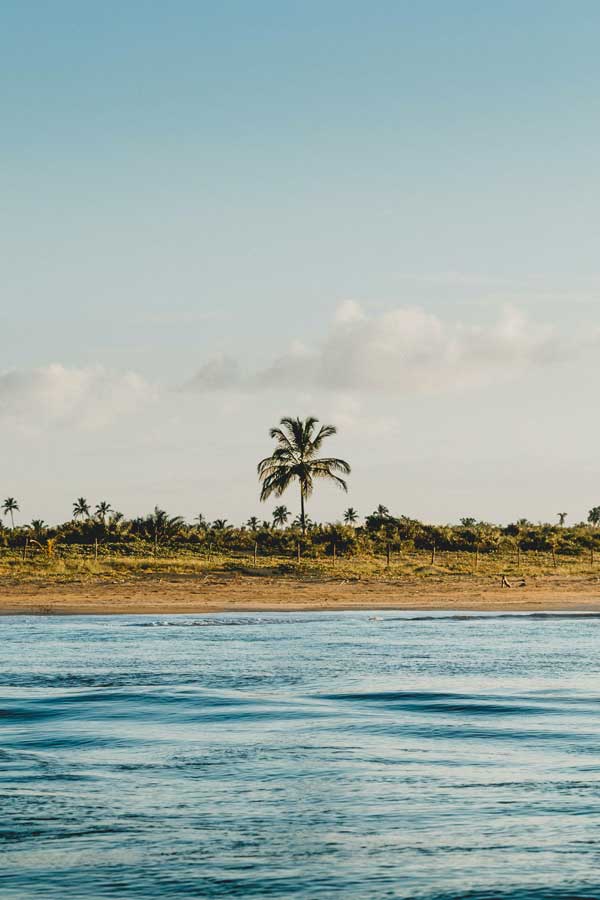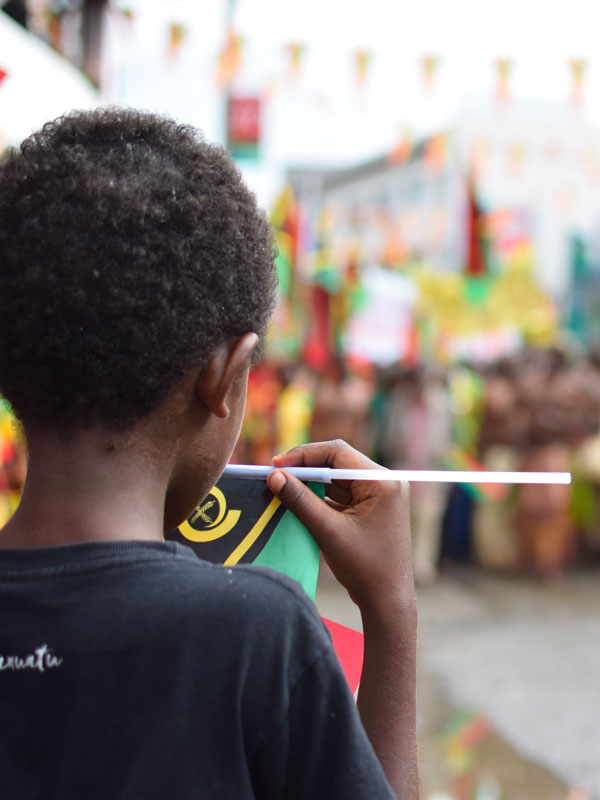
The Citizenship by Investment program is not just a catalyst for the development of Vanuatu, it’s nothing less than the expression of our sovereignty.
At only 4700 km2, Vanuatu makes up a miniscule 131690th of the earth’s surface.
At $934M, it accounts for less than one 87552nd of world GDP (2019).
By most known scales of measure, our country is an insignificant speck.
By most, save for one: national sovereignty. In this category we occupy a glorious 195th of the spotlight!

That means something: we are a full member of the chorus of nations, with all the prerogatives of an independent state. Like Canada, like Australia, we have the unalterable right to self- determination. Like France, like Japan, we enjoy the freedom to occupy our territory, establish our government, make our laws. The only restrictions other nations impose on us are those we accept of our own freewill – in theory at least – within the framework of international agreements.
We still need to overcome multiple challenges when it comes to our development. We need to invest in infrastructure and education so that our people can move on to a brighter future. But how do we pay for it?
Our lands, waters and soils feed us but do not make us rich. There’s tourism of course, but even that’s limited by our great distance from major markets, and has been obliterated by Covid. The Internet can free us from our isolation and, who knows, propel us one day into the knowledge economy, but for that to happen we will need an educated workforce and motivated investors.
For the time being, Vanuatu continues to receive development aid; but if we want to fully assume our independence, we cannot remain reliant forever on the generosity of others.
So how do sustain growth in an autonomous fashion? We are hardly spoiled when it comes to natural resources, location, climate, earthquake activity, and additional factors that contribute to the success of other states. On the other hand, we are exactly as independent.
Like them, we enjoy the privilege of accepting funds from other countries in exchange for sovereign deeds. We express this privilege every time we register a vessel, domicile a business, grant a financial license or bestow citizenship. Territories that belong to other countries, like New Caledonia or French Polynesia, or federated states or provinces like Victoria or Ontario, do not have this freedom, however rich they may be.
Among the 195 nations in our select club, 77 of us offer an immigrant investor program. And among these, 13 offer citizenship while the others offer residency (which often leads to citizenship after a few years).
The programs vary; there’s a world of difference between a U.S. EB-5 visa (minimum 1.8M USD) designed to create jobs, and a Vanuatu passport ($130,000). But what they all have in common is they cherry-pick their candidates to make sure they make a positive contribution to their host country.
And contribute they do. Under our two current programs (VCP and DSP), from 2017 to 2019, 5,515 Vanuatu passports were issued generating 26.8 BVt. The money went to pay down loans, subsidize essential industries, develop infrastructure, provide disaster relief, establish study grants and even finance the Pacific Mini Games. In 2019, it accounted for over one third of state budget revenue!
Add to that the 100% green nature of the program, and citizenship via investment is emerging as an essential catalyst for attaining the goals under the 2030 National Sustainable Development Plan (The People’s Plan).
For their part, we can’t say that our new compatriots abuse their status; the vast majority have never set foot in the country and probably have no intention of doing so. They can’t even vote here as long as they maintain citizenship elsewhere. What they mostly like are our legal and financial regimes, visa-free access to 129 countries, and in the case of the Chinese, the chance to get out from under Beijing’s thumb.
You would think there’s something in it for everyone. But this is far from the case.
In a detailed report recently commissioned by the Vanuatu Citizenship Office we’ve learned that the program suffers from two serious perception problems. And the main criticism isn’t an economic one but moral:
“Vanuatu is still a young country and for many people, the struggle for independence is still very much alive in their memories. From that point of view, giving citizenship to outsiders is often associated with giving away national identity, even if it results in significant social contributions.”
This position was expressed by many of our politicians, especially in the opposition parties. A lot would no doubt like to see the program abolished as soon as another source of revenue can be found to replace it.
Certainly, improvements to the program are needed, especially to strengthen oversight of candidates to meet the demands of the European Union. Vanuatu must continue to honour its commitments against money laundering and the financing of terrorism, which were recognized and applauded by the Financial Action Task Force (FATF) three years ago (even if the European Commission is slow to recognize these efforts themselves). It is not in our interest for our passport to become a liability at Schengen customs, as it would lose value. As such, the Citizenship Office’s report made excellent recommendations for administrative and legal adjustments, many of which were quickly implemented soon after its publication.
But it is wrong to assert as opponents of the program do, again according to the report, that it is a “very real threat to the sovereignty of the country.” On the contrary, it is a celebration of our sovereignty, directly resulting from our independence 40 years ago. If we were still a condominium, our citizenship and immigration politics would probably be inspired by those of France and the United Kingdom, where the situation is different. But we are sovereign and have decided to provide ourselves with a means of sustainable development using the resources available to us.
Look at it another way. Imagine if the program would continue at its current pace, or an average of 1800 passports per year (VSP and DSP combined). That would represent 0.6% of the population, less than the present rate of population growth of 1.73%. It would not risk upsetting our national identity, especially since most visa-holders never set foot in the country (so they never actually live here), don’t vote (so do not influence our choices as a society) and are selected for their upstanding character (so there’s little risk in them committing a crime). On the other hand, the 20 billion vatus they inject into the economy each year let us improve in a very significant way our health and education systems, so we can collectively take better care of our children and seniors.

Meanwhile, another source of revenue, international aid, potentially gives others leverage over our politics, which truly compromises our sovereignty. Investment citizenship simply reduces this threat by earning foreign exchange in a way we see fit, as is our prerogative as an independent state.
Other articles on the same subject
Find us on :
